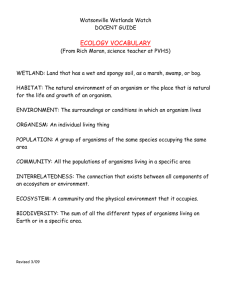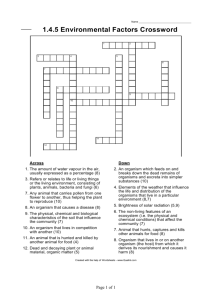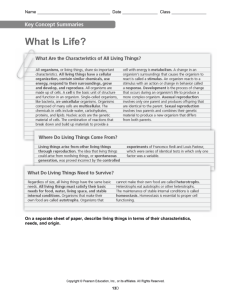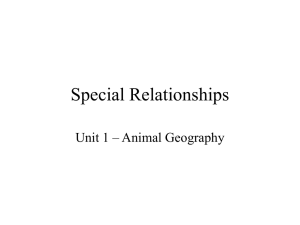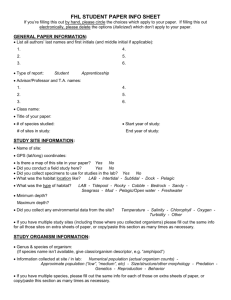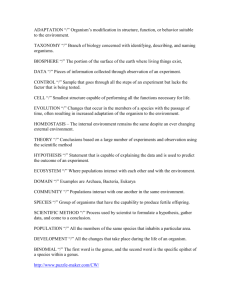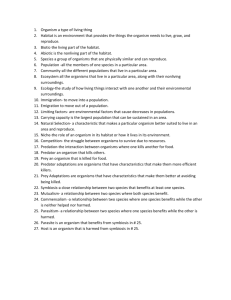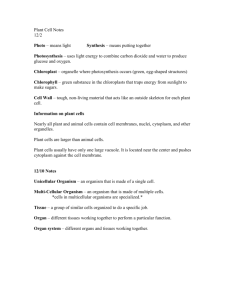Review Vocabulary
advertisement
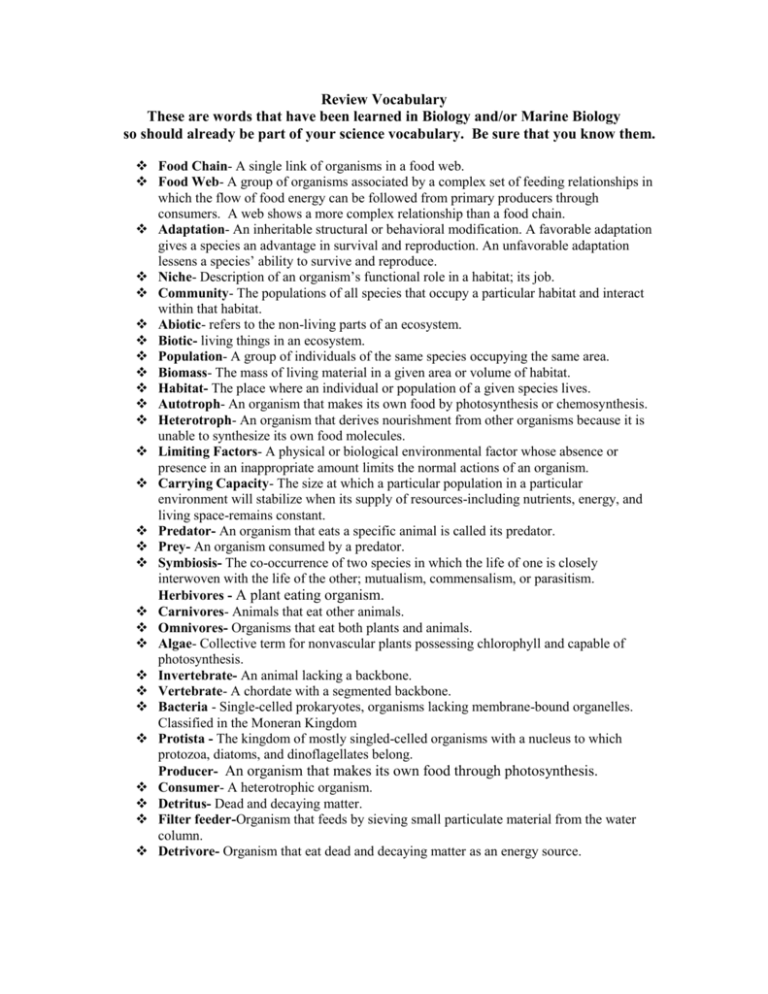
Review Vocabulary These are words that have been learned in Biology and/or Marine Biology so should already be part of your science vocabulary. Be sure that you know them. Food Chain- A single link of organisms in a food web. Food Web- A group of organisms associated by a complex set of feeding relationships in which the flow of food energy can be followed from primary producers through consumers. A web shows a more complex relationship than a food chain. Adaptation- An inheritable structural or behavioral modification. A favorable adaptation gives a species an advantage in survival and reproduction. An unfavorable adaptation lessens a species’ ability to survive and reproduce. Niche- Description of an organism’s functional role in a habitat; its job. Community- The populations of all species that occupy a particular habitat and interact within that habitat. Abiotic- refers to the non-living parts of an ecosystem. Biotic- living things in an ecosystem. Population- A group of individuals of the same species occupying the same area. Biomass- The mass of living material in a given area or volume of habitat. Habitat- The place where an individual or population of a given species lives. Autotroph- An organism that makes its own food by photosynthesis or chemosynthesis. Heterotroph- An organism that derives nourishment from other organisms because it is unable to synthesize its own food molecules. Limiting Factors- A physical or biological environmental factor whose absence or presence in an inappropriate amount limits the normal actions of an organism. Carrying Capacity- The size at which a particular population in a particular environment will stabilize when its supply of resources-including nutrients, energy, and living space-remains constant. Predator- An organism that eats a specific animal is called its predator. Prey- An organism consumed by a predator. Symbiosis- The co-occurrence of two species in which the life of one is closely interwoven with the life of the other; mutualism, commensalism, or parasitism. Herbivores - A plant eating organism. Carnivores- Animals that eat other animals. Omnivores- Organisms that eat both plants and animals. Algae- Collective term for nonvascular plants possessing chlorophyll and capable of photosynthesis. Invertebrate- An animal lacking a backbone. Vertebrate- A chordate with a segmented backbone. Bacteria - Single-celled prokaryotes, organisms lacking membrane-bound organelles. Classified in the Moneran Kingdom Protista - The kingdom of mostly singled-celled organisms with a nucleus to which protozoa, diatoms, and dinoflagellates belong. Producer- An organism that makes its own food through photosynthesis. Consumer- A heterotrophic organism. Detritus- Dead and decaying matter. Filter feeder-Organism that feeds by sieving small particulate material from the water column. Detrivore- Organism that eat dead and decaying matter as an energy source.
